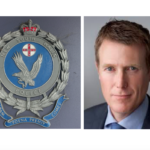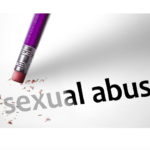Christian Porter Pressured to Reveal Who Paid His Legal Costs

Pressure mounts for the nation’s former chief law officer, Christian Porter, to reveal information about the ‘blind trust’ used to pay his legal fees.
Prime Minister Scott Morrison says he is seeking legal advice on how to handle the fact that the former Federal Attorney-General had his legal fees paid by unknown sources.
Mr Porter, who is the current Federal Minister for Industry and Science, has come under intense criticism for accepting the money, which was donated through an entity called the “Legal Services Trust” .
He is now under investigation for possibly breaching Ministerial Standards.
The money helped Mr Porter to fund his defamation case against the Australian Broadcasting Corporation (ABC) and it’s reporter Louise Milligan over a story which mentioned that a senior Federal Cabinet Minister had been accused of historical sexual assault.
Porter abandons lawsuit
Mr Porter eventually came forward as the minister in question and has staunchly maintained his innocence.
NSW Police closed their investigations into the case when the alleged victim committed suicide, and Mr Porter went onto sue the ABC for defamation.
The case was settled without the ABC paying damages, but agreeing to add an editor’s note to the story.
Government assures public that taxpayers who not foot Porter’s bill
At the time, the Federal Government assured the Australian public that taxpayer funds would not be used to pay Mr Porter’s legal fees, estimated to be in the hundreds of thousands of dollars.
For the sake of political transparency, Mr Porter is now being pressured to disclose exactly how much money he received, and where it came from.
A disclosure statement issued by Mr Porter claimed that as a potential beneficiary, he had “no access to information about the conduct and funding of the trust”.
What is a ‘blind trust’?
There is no requirement to register a trust in Australia so details including beneficiaries, trustees and revenues are not publicly available.
A ‘blind trust’ is one in which the trustee is given complete control over the assets within the trust, so that neither the beneficiaries nor the settlor of the trust have any influence over or knowledge of the trustees’ decisions about investments, asset or distribution of trust funds. Blind trusts are often set up to eliminate any real or perceived conflicts of interest.
Depending on how the trust was established, Mr Porter may not be able to find out who established the trust or who contributed to it. He can ask, but whether the trustee/s choose to divulge that information is up to it/them.
So, as the situation stands, any person, group, organisation or entity, Australian or foreign could have established the blind trust and contributed to it.
Given that Mr Porter has only recently declared the blind trust, it is possible that the trust was recently established, and it is also possible that it was established for the sole purpose of finding the legal challenge.
The fact that Mr Porter accepted the funds from a completely unknown source not only shows a lack of judgement, it also shows a lack of integrity and transparency.
Will this be the end of Christan Porter’s Ministerial career?
Most agree that he now has a duty to find out. As several experts and commentators have also pointed out, the situation also exposes weaknesses in the current political donation laws.
Both the Labor Party and the Greens are insisting that the trust details be made public.
Former Prime Minister Malcolm Turnbull has gone one step further suggesting that Mr Porter needs to disclose the identity of any contributors to the trust or give the money back.
“Basically what Porter is saying is that it is okay for an Australian cabinet minister, a former attorney-general – not just of Australia, but of Western Australia – to take a large donation, a large gift to himself, without disclosing who the donor was and apparently without him knowing who the donor was either. It is so wrong,” Mr Turnbull told media, adding that he would be surprised if Scott Morrison allowed it to stand.
For now, the current Prime Minister is ‘taking advice’.
Need for national independent corruption commission
Whether he will call Mr Porter to account remains to be seen. He has been staunchly supportive of the former attorney general since the historical rape allegations first came to light, going so far as to block an independent investigation into the allegations after NSW Police closed their files.
Scott Morrison will confer with the secretary of the Prime Minister’s department, Phil Gaetjens, and Stephanie Foster, deputy secretary for governance. But in political circles there is some skepticism about the advice Mr Gaetjens may provide. Some of the previous ‘reviews’ undertaken by Mr Gaetjens and his team, such as the investigation into the Sports Rort scandal have not stood the test of independent scrutiny, and often his reports are never made public.
The situation has renewed calls for the establishment of a Federal anti-corruption commission which has the resources to impartially investigate such issues properly. Currently corruption bodies such as the Independent commission against Corruption (ICAC) are state based, and don’t have national jurisdiction.







